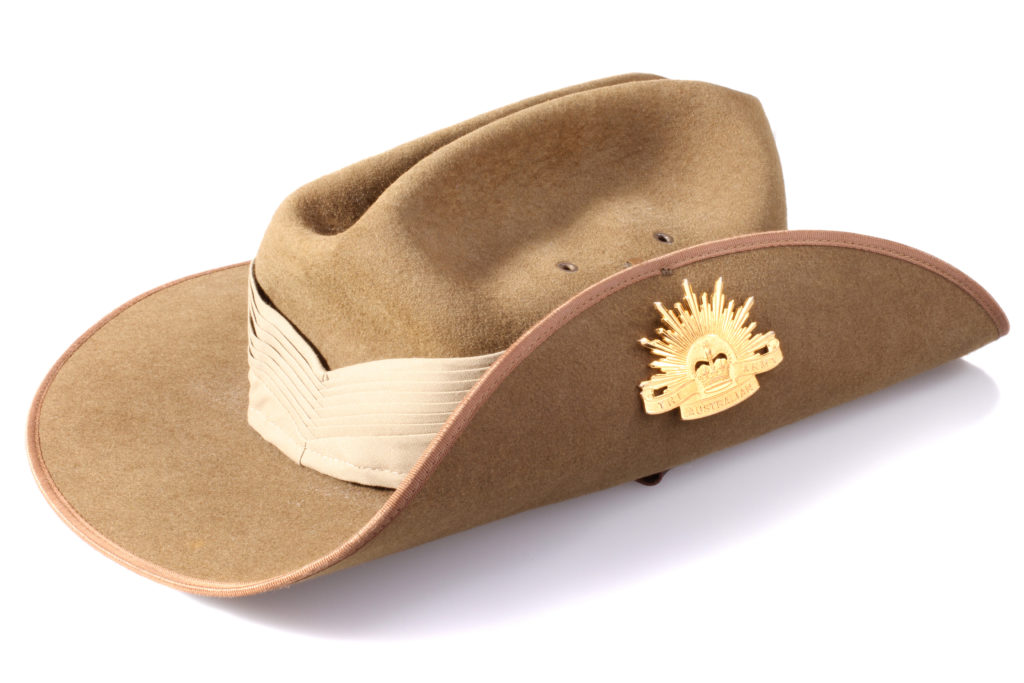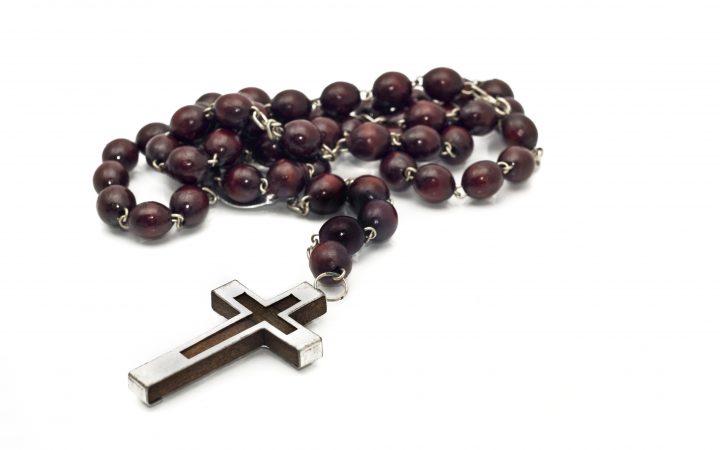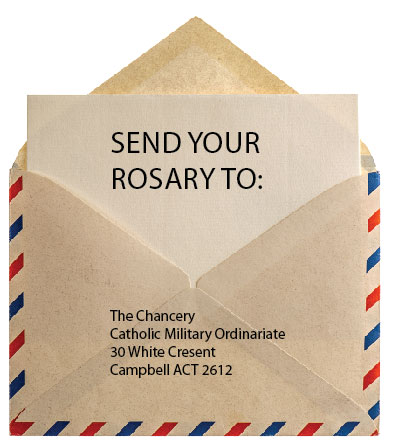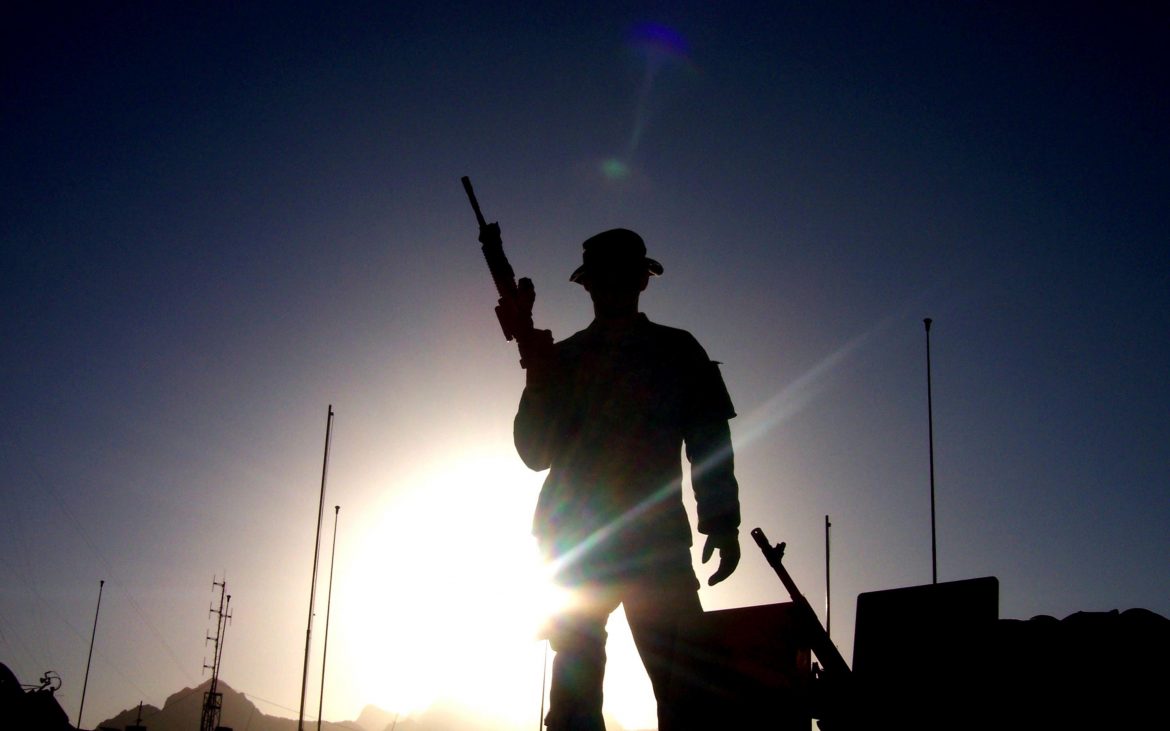Military Chaplains Today

An interview with Fr Bryan Pipins SJ
I had the priviledge of interviewing a current military chaplain Fr Bryan Pipins. His energy and love for his ministry was very apparent and the joy he took from it was truly inspiring.
Kiara: To start with, could you give us a quick biography?
Fr Bryan: I was born in Melbourne and joined the army reserves at 17 and then full time at 18. I trained as a soldier and officer and spent 13 years in the army. I then left to join the Jesuits in 1995.
I went over to Timor in 1999 to work with the refugees there for nearly 2 years. I then returned to Australia to complete my study and was ordained in 2003. Five days after ordination I was sent to the Philippines to teach English for two years. When this was finished I returned to Australia for a while before being sent to East Africa for a few years to work with refugees in Darfur, Uganda and South Sudan.
In 2008, I was brought back to Australia to work on World Youth Day 2008 in Sydney for six months. When WYD finished I went to America to complete my final year of Jesuit formation in Boston and New York. When this was completed I took over as parish priest in Seven Hills SA and in 2012 was assigned as a chaplain in the Australian Army. I was assigned to Darwin and have been sent to Afghanistan three times. I returned from Afghanistan recently after spending five months on deployment.
K: Most people outside the army have very little idea of what exactly Army Chaplains do, could you give us a quick rundown of your duties and what a typical day looks like?
B: My role has essentially two hats. The first is a pastoral role. I was embedded in a unit and was under the unit’s commander.
I am essentially there for the soldiers as someone to talk with and support them who is outside their chain of command, but still part of the army. I spend a lot of time talking to them and helping them as a pastor work through the difficulties they are having.
The other hat is as a minister. I’m in Darwin at the moment and I have to make the Sacraments available here in Darwin. This is for the personnel in Darwin of the three services (Army, Navy and Air Force). I also sacramentally care for the airforce personnel based in Katherine, which is 320 km away every second weekend. I used to do it by myself, but I recently had an army deacon arrive, to help support our parishioners.
K: That must certainly keep you busy! Do you find your ministry mainly focusing on Catholics or do you also interact with soldiers of other faiths or no faith?
B: My unit is very diverse and I get to know all of them. Because I was a soldier and I am outside their chain of command, soldiers feel they can talk to me. There are sensitive issues which are potentially damaging to their career, particularly with mental health, which they confide in me and seek guidance in finding support for them.
A lot soldiers have a fear of asking the wrong questions in case it would affect their record and career. They often fear that any blot on their record could affect their promotions which are quite competitive, even though that’s not how it actually works in the Australian Army. So I consult with the psychologists and feedback their insights to the soldiers and encourage them to get professional help when they need it. The psychologists in the Army are phenomenal and they really care.
K: Does your ministry encounter the families of soldiers as well?
B: I often get to know the families of soldiers who bring them to Mass on a Sunday. As for my ministry, I don’t enter into the family space unless I am asked to. I can be called into a family crisis to offer pastoral support.
K: As a history and politics student, I have noticed that the nature of warfare has changed quite a lot, especially with the emphasis on counter insurgency and guerrilla warfare. Do you see a difference from when you were in the armed forces to now and how do soldiers respond?
B: I’ve found that the nature of basic soldiering hasn’t really changed much at all. Counter insurgency has been around since the Vietnam War and The Malaya Emergency. One of the main things that has changed is the amount of information and technology available. A lot of soldiers are a lot more tech savvy than I am and the sheer volume of information to make sense of is what’s new.
K: When you are on tour, what do you do to care for your own spiritual needs?
B: As you know Jesuits have a long formation period and so the space that it created in my life is what sustained me. I would say daily Mass on deployment and I would always have people there. I also spend some time every day in personal prayer and scripture reading. Having that space was really important for me and allowed me to focus my energy on the soldiers in my unit.
K: If you don’t mind me asking about your recent tour, does the nature of your ministry change or is it the same as being back home?
B: In many ways not much changes, but the level of intensity does. Soldiers on tour sleep together, eat together, go on missions together; they spend every minute of every day with each other. There is very little space or privacy. I also become a part of that life. When you are in such close quarters with others, you see the pretenses fall away and you really get to know people. The way you get to know people really deeply is much like what a parish priest does over many years, but when you’re on tour, it happens much more quickly.
My activities remain much the same, being available to soldiers and to administer the Sacraments but it’s on a whole new level. Being on tour gives me time to really focus on my ministry because I am less likely to get distracted by other things. One of the other unexpected difficulties that technology has brought up is the ease of communication back home to families. Being able to call home over video as easily as we do now is unprecedented and good for the soldiers and the families. However, with the ease, there are expectations of daily communication back home which are not always able to be met. Sometimes our comms would go down for hardware reasons or would be shut down temporarily for security reasons and the missed daily call produces a lot of anxiety for families back home, especially because we can’t tell them not to panic, it’s just a technical problem.
K: A lot of Australians have very little idea of what soldiers experience on tour. Do you find that soldiers have some difficulty readjusting to life back home or does that depend on the individual soldier?
B: In my experience it really depends on the individual soldier and also on the tour. When you have guys who go on tour and lose a lot of people, they have a harder time back home. On the other hand, if it is a relatively uneventful tour then there is less of an adjustment.
 K: Finally, what are some things we can do practically to support our soldiers spiritually?
K: Finally, what are some things we can do practically to support our soldiers spiritually?
B: When I was in Timor as part of a non-government agency (JRS), a lady in Brisbane used to send us Rosary beads to give to the refugees there. That simple thing meant a lot to them and I’ve found the same thing with the soldiers. I always try and have some for people to take. You’d be amazed at how quickly they disappear.
Our soldiers need our prayers too, especially around holiday times like Easter and Christmas. Christmas cards with Creches on them are much appreciated. They especially need our prayers because quite often, they not only spend their holidays without their families but without the Sacraments as well. When I was on tour, I was the only Catholic priest available for the entire of Coalition forces in Kandahar and Kabul.
So pray for our soldiers, everyone can do that and they need them.
ANZAC ROSES 
A rosary for our armed forces
Our men and women in the armed forces need our prayers and what prayer is more effective than the Rosary?
To mark ANZAC Day this year, do something special for our soldiers. It’s simple!
- Make or buy a set of Rosary beads.
- Pray with the beads for a soldier.
- Write a note to let them know you are praying for them.
- Send the beads to the Military Chaplaincy who will distribute them as needed.
If you’d like to make your rosary beads, check out
The Rosary Keychain

